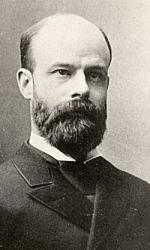Planning worship?
Check out our sister site, ZeteoSearch.org,
for 20+ additional resources related to your search.
- |
User Links
Search Results
God Save America
Author: William G. Ballantine Appears in 42 hymnals First Line: God save America! New world of glory Used With Tune: RUSSIAN HYMN
God Save America
RUSSIAN HYMN
Meter: 11.10.11.9 Appears in 294 hymnals Composer and/or Arranger: Alexis Fyodorovich Lvov Tune Key: C Major Incipit: 56653 11765 64553 Used With Text: God Save America
RUSSIAN HYMN
God Save America
Author: W. G. Ballantine Hymnal: The Service Song Book #182 (1917) First Line: God save America, new world of glory Languages: English Tune Title: [God save America, new world of glory]
God Save America
God Save America
Author: W. G. Ballantine Hymnal: Jehovah's Praise #290 (1928) First Line: God save America, new world of glory Languages: English Tune Title: [God save America, new world of glory]
God Save America
God Save America! New World of Glory
Author: William G. Ballantine, 1848-1937 Hymnal: Christian Worship #547 (1941) Topics: Our Nation Languages: English Tune Title: RUSSIAN HYMN
God Save America! New World of Glory
Aleksēi Federovich L'vov

1798 - 1870 Person Name: Alexis Fyodorovich Lvov Composer of "RUSSIAN HYMN" in The Cyber Hymnal Alexis Federovich L’vov Estonia 1798-1870. Born at Reval, Estonia, son of the St. Petersburg imperial court chapel director, he learned violin as a child and gave regular concerts in his home at age 9. Studying under a number of teachers until age 19, he then studied independently and developed his own personal style of playing. He entered the Russian army in 1818, became a civil engineer there eventually a General in 1828, when he was appointed Aide-de-camp to Tsar Nicholas I. He married Praskovya Aggeyevna, and they had a son and two daughters. He eventually took over his father’s post after he died in 1837 and stayed at that position for 24 years. He formed a string quartet in St. Petersburg and held weekly concerts at his private residence, which were attended by members of high society, including Franz Liszt, Robert and Clara Schumann, and Berlioz. In charge of the Russian chapel choir, it was described by Berlioz as of exceptional quality, expressing regret that Europeans were unable to hear the extraordinary sounds of the chapel choir (80 singers). L’vov took his quartet on several European tours where he could play to public audiences. He met Mendelssohn, Meyerbeer, and Spontini, who became personal friends. L’vov codified the Russian liturgical musical style ‘Obikhod’, the standard repertory of most Russian Orthodox churches in the world. L’vov was a member of the Russian musical establishment. Two of his friends who attained musical fame were Glinka and Berlioz, both impressed with L’vov’s superb violin playing and composing abilities. He composed violin music, operas and various religious pieces. His opera “Undine” (1846) became famous. In 1850 he founded the Russian Concert Society. His musical style was eclectic, combining traditions of Russian culture with Italian and German influences. He retired in 1867 due to deafness. He died near Kovno, Lithuania.
John Perry
Aleksēi Federovich L'vov
W. G. Ballantine

1848 - 1937 Person Name: William G. Ballantine Author of "God Save America" in A Hymnal for Friends
W. G. Ballantine


 My Starred Hymns
My Starred Hymns


